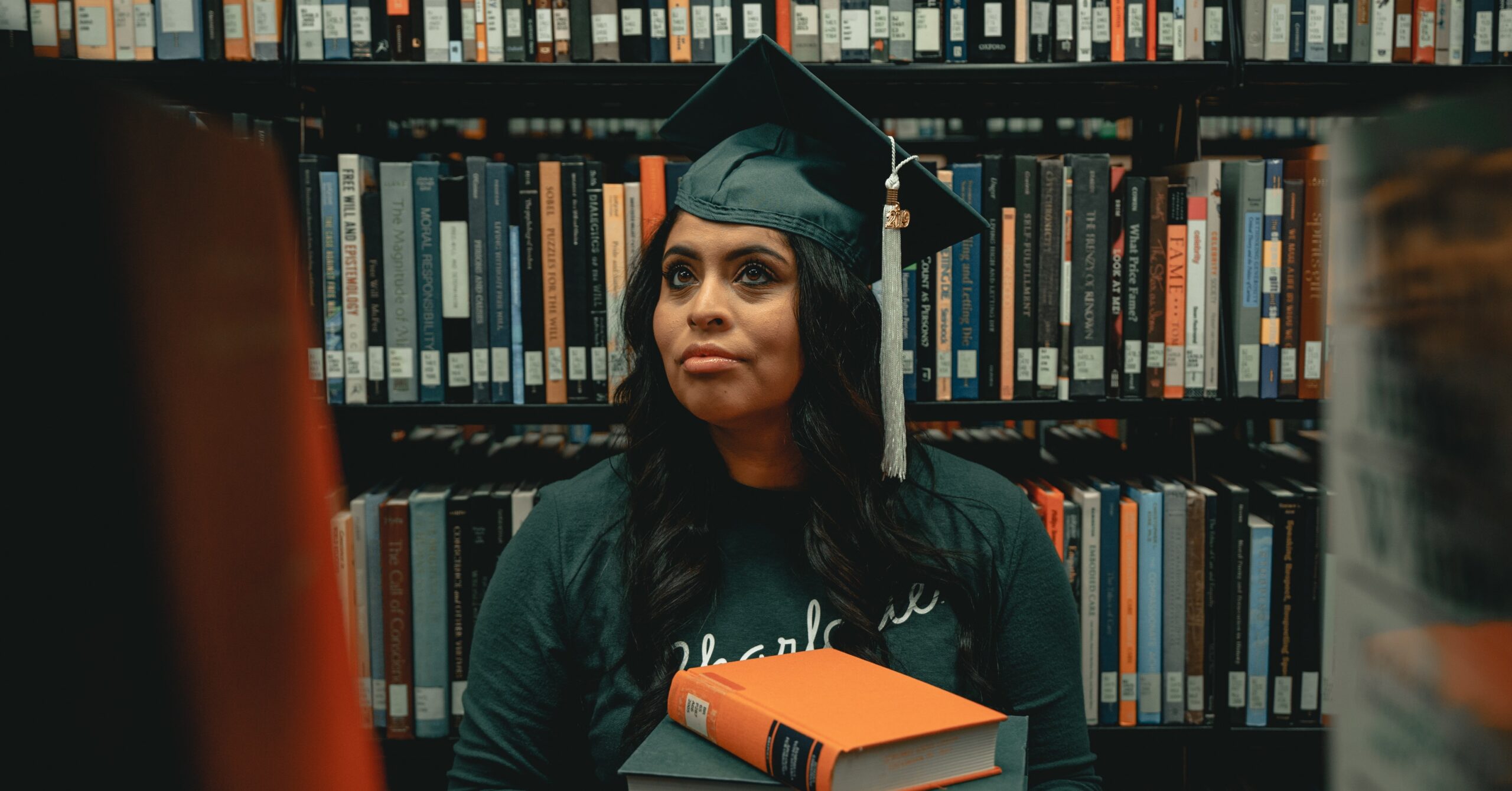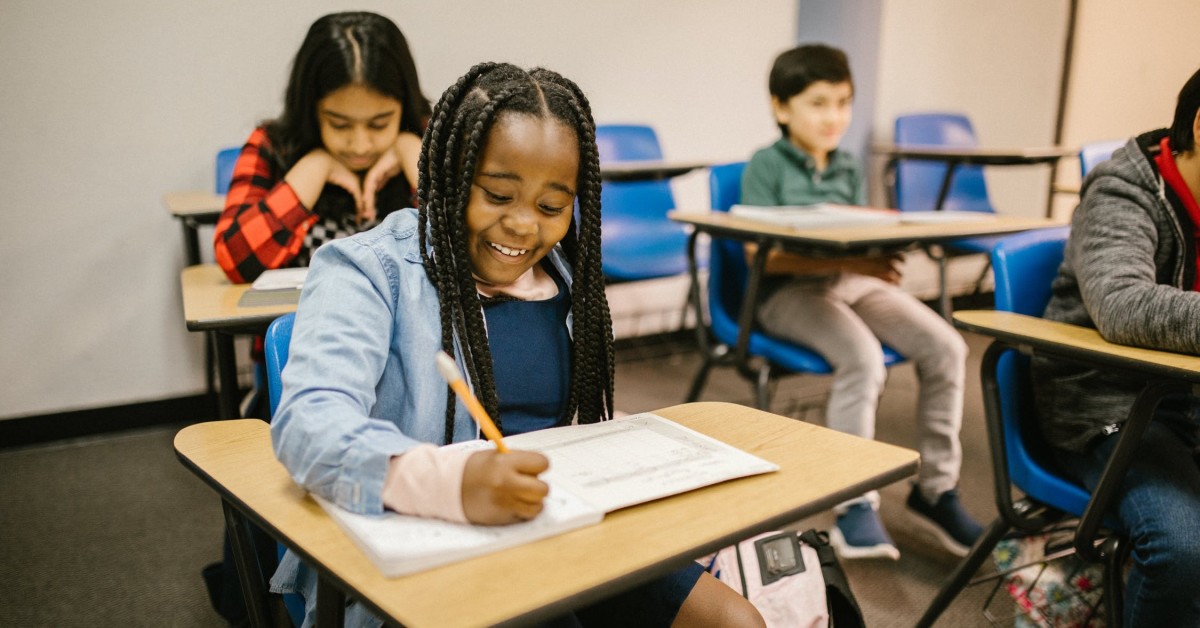
Boost Your Teacher's Salary with a Master's Degree
Even in states where a master's degree isn't required, teachers [...]

You may think becoming a teacher takes years of study. It certainly can, but there are, in fact, many different ways to earn teacher certification, some of which are surprisingly quick.
Many prospective teachers graduate with a Bachelor of Science in Education, then complete an education master’s degree program with a licensure track, an undertaking that usually takes five to seven years. There are also one-year master’s programs for new teachers who don’t have undergraduate education degrees.
A third route into teaching involves enrolling in one of the many alternative teacher certification programs. Some of these can be completed in just one year by prospects with undergraduate degrees. And if you’re open to teaching outside the public school system, the fastest way to become a teacher—teaching in a private or religious school—typically doesn’t require a license.
Whether you have dreamed of becoming a teacher since childhood or are looking for a new career path, there are pathways into teaching that take a year or less. In this article about how to become a teacher quickly, we cover:
The answer to this question depends on where and what grade level you want to teach. Each state’s department of education sets its own requirements teachers must meet to qualify for licensure. In general, becoming a teacher takes about four to five years. Unless, that is, you want to work in one of the states that require teachers to have master’s degrees. This timeline also assumes you major in education and can graduate from your bachelor’s degree program in the usual four years.
Some states require educators to complete a separate post-baccalaureate teacher preparation program to sit for the required teacher certification exams. If you plan to work in one of these states, add at least one year to however long it will take you to fulfill other requirements.
| University and Program Name | Learn More |
|
New York University:
Master of Arts in Teaching
|
|
|
Merrimack College:
Master of Education in Teacher Education
|
Earning a four-year bachelor’s degree is the most time-consuming part of becoming a teacher. The bad news is that becoming a teacher without a bachelor’s degree is nearly—though not entirely—impossible (more on this below). The good news is that your degree doesn’t necessarily need to be a teaching degree. If you already have a bachelor’s in another subject, you may already be eligible to enroll in a teacher preparation program at a college or university.
Here’s another piece of good news: if you don’t already have a bachelor’s degree, there are integrated bachelor’s degree programs in which students can earn a bachelor’s degree in education and complete a teacher preparation program in just four years total. And, if you really don’t want to major in education, you may be able to major in your subject area and minor in education—especially if you want to become a high school teacher.
You don’t need a master’s degree in education to become a teacher anywhere in the US, though you may need to go back to grad school eventually to keep teaching. Even as states like Georgia continue to license educators without advanced degrees, states like Connecticut, Ohio, Maryland, Massachusetts, and New York have all made earning a master’s degree in teaching or education a part of maintaining licensure. In many states, earning credits toward a master’s degree is one of the easiest ways to meet continuing education requirements, so teachers who’ve been in the classroom for a certain number of years tend to have master’s degrees even though it’s not required.
Having a Master of Arts in Teaching (MAT) or Master of Education (MEd) can be a real asset, and there are programs that take just a year to complete. There are even colleges and universities that offer one-year master’s in education programs for non-teachers.
If you already have a bachelor’s degree, you may be able to become a teacher in just one year by enrolling in a master’s in education programs for non-teachers with a licensure track. The teacher residency program at New York University, for one, combines a full-year mentored teaching residency with evening online master’s classes leading to a Master of Arts in Teaching. Best of all, you’ll draw a salary or stipend while you learn, helping defray the cost of the program.
Don’t assume that the Master of Arts in Teaching is the better choice because you want to launch a classroom career. While the MAT is sometimes described as the degree for students who want to teach and the MEd is regarded as the degree for aspiring administrators and curriculum designers, there are many MEd specializations designed for educators.
Other colleges and universities offer concentrations related to specific subjects like social studies and science, early childhood education, and educational psychology. Some of these programs are geared toward experienced teachers, but others are designed for prospective teachers and can help you get a teaching credential in your state.
Almost all states have their own state-sponsored alternative certification programs designed to help teachers get into underserved public school districts as quickly as possible. You can research these programs online; note that the information you’ll find may be out of date. The easiest way to find out more about the alternative certification options for public school teachers in your state is to reach out to the department of education directly.
There are also fast-track teaching certification programs administered by colleges and universities, non-profit organizations, and private companies. Check out these options:
Teach for America is a highly selective two-year program that puts aspiring teachers across the US into classrooms in low-income and underserved areas. Members commit to teaching in these areas for a minimum of two years in return for classroom training and support as they complete the training necessary to get state certification and launch a teaching career.
You can complete the American Board for Certification of Teacher Excellence‘s 100 percent online certification program in less than one year. It qualifies you to teach in Arizona, Arkansas, Florida, Idaho, Mississippi, Missouri, New Hampshire, Oklahoma, Pennsylvania, South Carolina, Tennessee, Utah, or Wisconsin. The program is designed with flexibility in mind. All education courses are delivered asynchronously.
The cohort-based Teach-Now teaching program is for anyone who wants to teach in Washington, DC and Arizona, or in states with reciprocity. At just nine months, this program is one of the fastest alternative teacher education programs. Small groups of 10 to 15 students complete intensive, comprehensive modules and synchronous, virtual classes together for the duration of the program as well as independent projects and asynchronous clinical activities.
iTeach is the fastest alternative teacher preparation program. Students complete just six months of online asynchronous coursework, then transition into a year-long paid teaching residency designed to help students get professional experience before applying for full-time teaching positions. The list of certified states includes Louisiana, Nevada, New Mexico, Tennessee, Texas, and Washington, DC.
Be sure to check with your state’s department of education to confirm that the program you’re considering follows all state guidelines for teacher preparation and that you’ll be eligible for state licensure after completing the program.
There are two routes into teaching we haven’t discussed yet, both of which can take no time at all.
The first is to teach at a private school. Private schools (including religious schools) are allowed to set their own criteria when it comes to minimum teacher standards, so you might be able to find a teaching position at a private school without a degree in education or a license. Landing a teaching job in a private school may even help you meet state requirements related to teaching experience, making it easier to become a certified teacher later on.
The second is to relocate to a state, rural area, or inner-city area with a severe teacher shortage. A few states have created educational initiatives through which aspiring teachers are granted temporary licenses in return for working in public schools in high-need areas (either as primary classroom teachers or substitute teachers). If you have a bachelor’s degree in math, science, history, English, or another field, you may qualify to step into an emergency status teaching job in an area where school districts struggle to fill teaching positions, provided you can pass a background check.
The answer depends on where you work and how you became a teacher. Some private school educators never get a degree in education. If you take one of the aforementioned emergency-status teaching jobs, you’ll eventually need to fulfill the program’s education requirements and take the state licensing exam and the PRAXIS, which assesses basic skills in reading, writing, and math. A bachelor’s degree in any subject plus a teaching certificate is all you’ll need in some states. In others, you can only teach for so long—usually five to ten years—with just a bachelor’s degree before you have to go back to graduate school for the master’s degree in teaching or education you’ll need to fulfill professional development requirements.
You may discover, however, that you eventually want that master’s degree even if you don’t need it. An MAT or MEd won’t necessarily make you a better classroom teacher but it might make you a more attractive one. It can also confer the qualifications you need to step into better-paying roles. According to one report from the Center for American Progress, teachers with graduate degrees earn anywhere from $1,400 to $11,000 more than those without. The National Center for Education Statistics found that teachers with master’s degrees earn 26 percent more, which is about a $13,000 difference. The conclusion you might draw from these numbers is that while you can become a teacher fast, turning teaching into a lucrative career will probably take a few years more.
This article was originally published in 2017. It has been updated to reflect the most recent data on the subject.
Questions or feedback? Email editor@noodle.com

Even in states where a master's degree isn't required, teachers [...]

According to Zippa, salaries for school principals range from under [...]

A lot of factors come into play. Think: demand, specialization, [...]

The 8 Keys to Success,created by the DOE, VA, and [...]

Inclusive education means that students with disabilities and children of [...]
Categorized as: Teaching, Education & Teaching